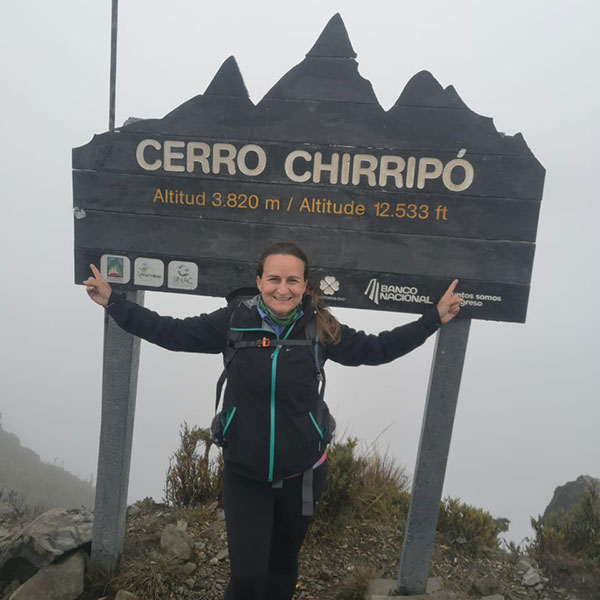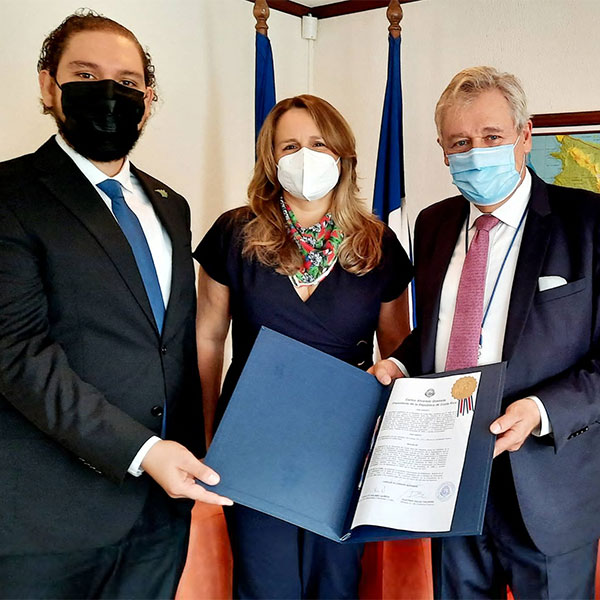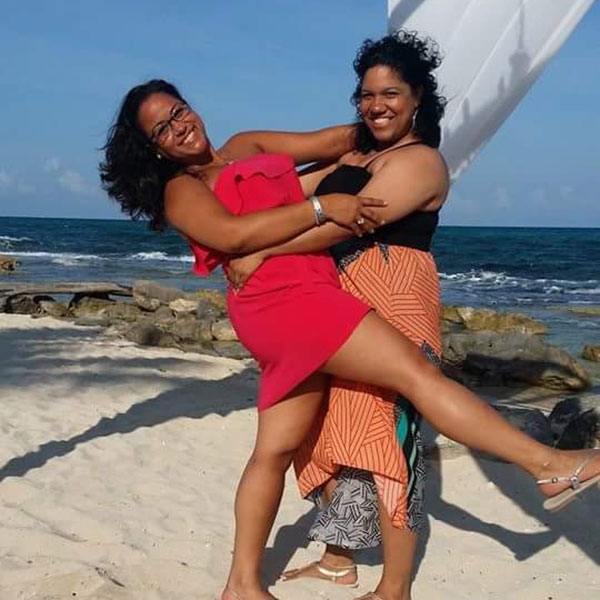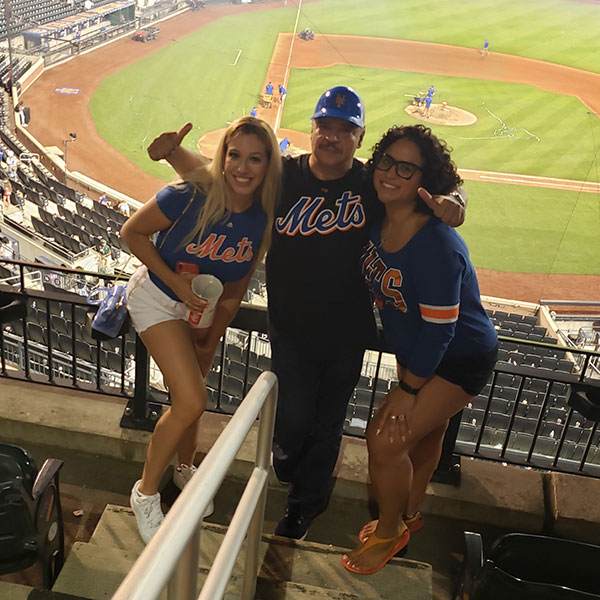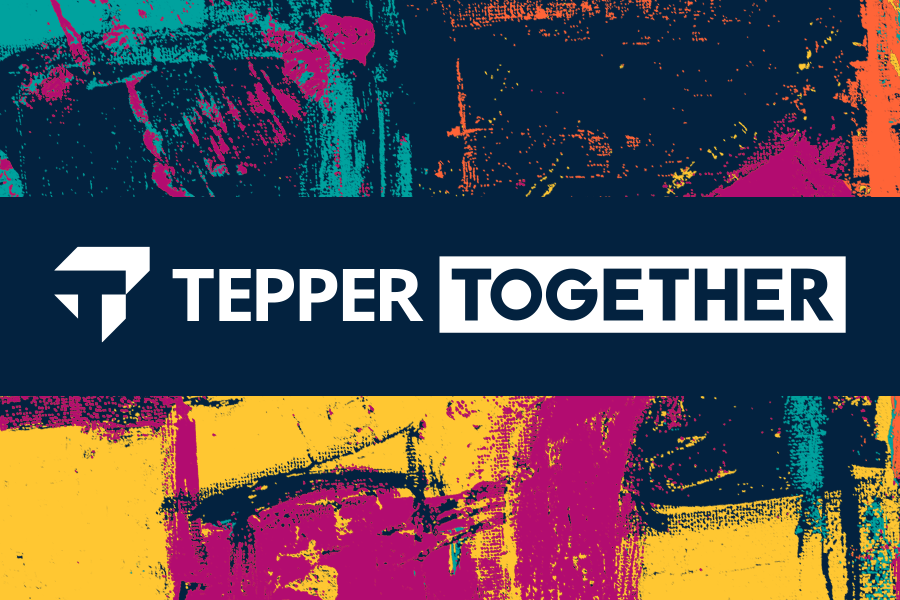
Honoring and Celebrating Hispanic Heritage Month With Tepper School Alumni
Hispanic Heritage Month, which is celebrated from September 15 to October 15, honors the cultures and contributions of Hispanic and Latino Americans.
To celebrate and honor Hispanic Heritage Month, we are sharing the stories of several of our Hispanic alumni who have contributed to shaping the Tepper School experience into one that is cross-cultural, rich, diverse, and inclusive.
Celebrating Tepper School Hispanic Alumni
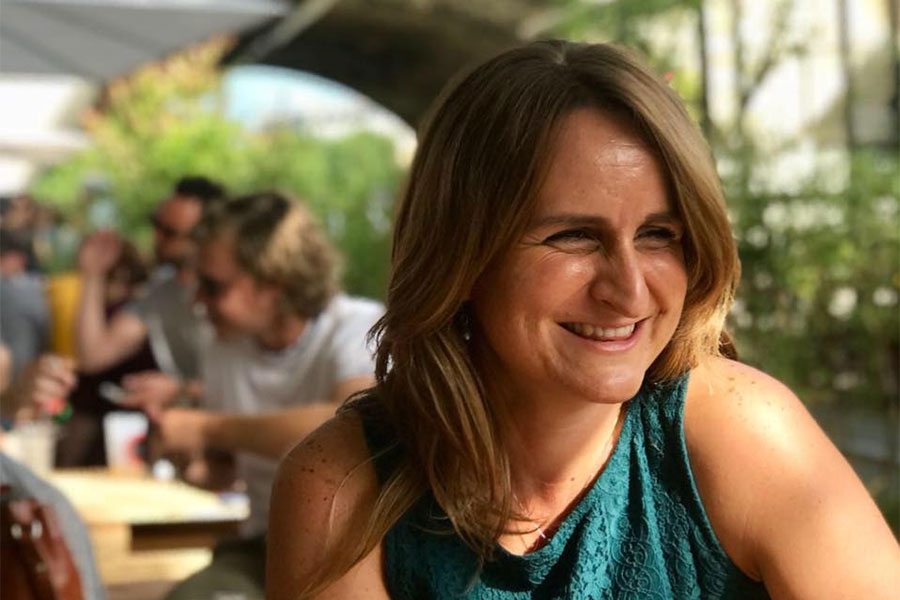
Marianne Bennett Mora (MBA 2005)
Coordinator of OECD matters
Ministry of Foreign Trade of Costa Rica
"Be open to opportunities that challenge you and take you out of your comfort zone, because this is where you will grow the most and develop skills that will prepare you for what could be your most fulfilling job."
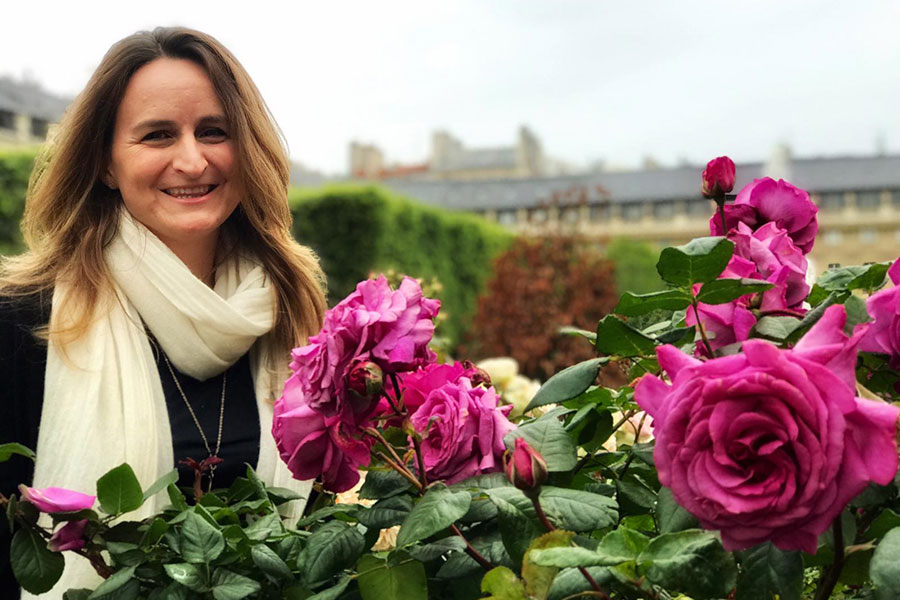
Marianne Bennett Mora (MBA 2005)
Coordinator of OECD matters
Ministry of Foreign Trade of Costa Rica
"Others can give you perspective, challenge your thinking and your decisions, and help you grow and succeed."
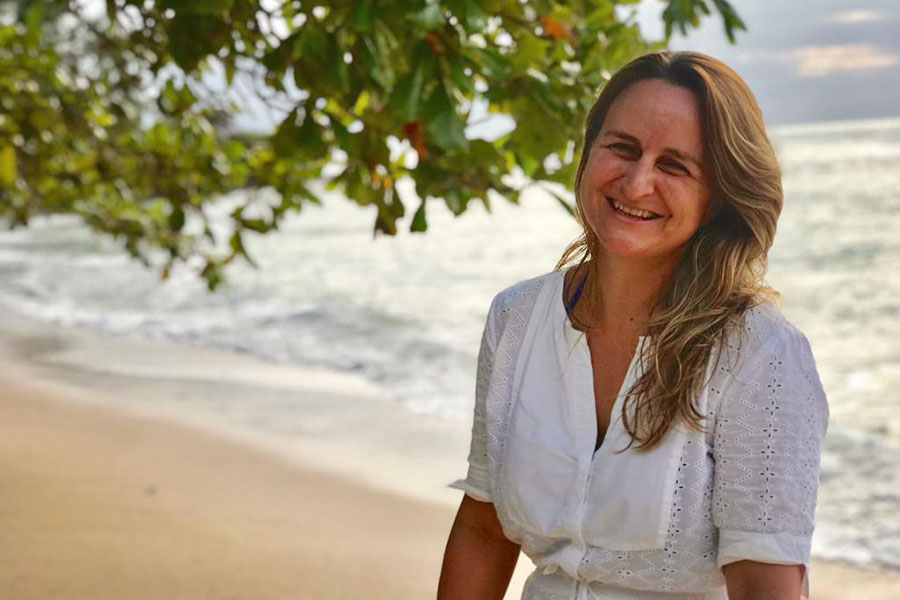
Marianne Bennett Mora (MBA 2005)
Coordinator of OECD matters
Ministry of Foreign Trade of Costa Rica
"I would like the world to understand our cultural diversity, our tenacity, our joie de vivre, and our passion."
Describe your journey to your current role:
I have been managing the Costa Rican government’s efforts to join the Organization for Economic Cooperation and Development (OECD) since 2012 and throughout three different administrations. On May 25, 2021, Costa Rica became the OECD’s 38th member and fourth Latin American country to achieve this goal.
I’ve been in my current role for over nine years and the journey to get here was unexpected and challenging. It challenged me to thrive in situations that brought me out of my comfort zone; to develop and sharpen skills, such as creativity, project management, problem-solving, and public relations; and to be resilient and perseverant.
After graduating with my Tepper MBA, I took a year off to learn French while living in Paris and teaching English in a French high school. Then, I worked for Deloitte Consulting’s Human Capital group in New York City as senior consultant for two years; returned to Costa Rica to work in business development for a small firm; and then took my current position at the Ministry of Foreign Trade of Costa Rica.
What is one thing you want the world to know, acknowledge, or understand about the Hispanic community?
Our cultural diversity, our tenacity, our joie de vivre, and our passion.
How can others be an ally to you or how have others been an ally to you?
Mentors and peers have been an important part of my professional journey. My first mentor challenged me to undertake an MBA instead of a Masters in law (as is the usual career path for attorneys and I am one), and it was a wonderful decision that helped me develop skills and obtain experiences I otherwise wouldn’t have. Others can give you perspective, challenge your thinking and your decisions, and help you grow and succeed.
What advice would you offer current Tepper School students?
Be open to opportunities that challenge you and take you out of your comfort zone, because this is where you will grow the most and develop skills that will prepare you for what could be your most fulfilling job.
I would have never imagined that my training and work experience as a lawyer in Costa Rica, my MBA and work experience at Deloitte, my year off in Paris, and my experience in business development would be such a good preparation for what has been the most fulfilling role I’ve had in my career so far: working to make Costa Rica a member of the OECD. My private sector experience and academic background provided solid foundations to serve in the public sector with passion, excellence, and commitment.
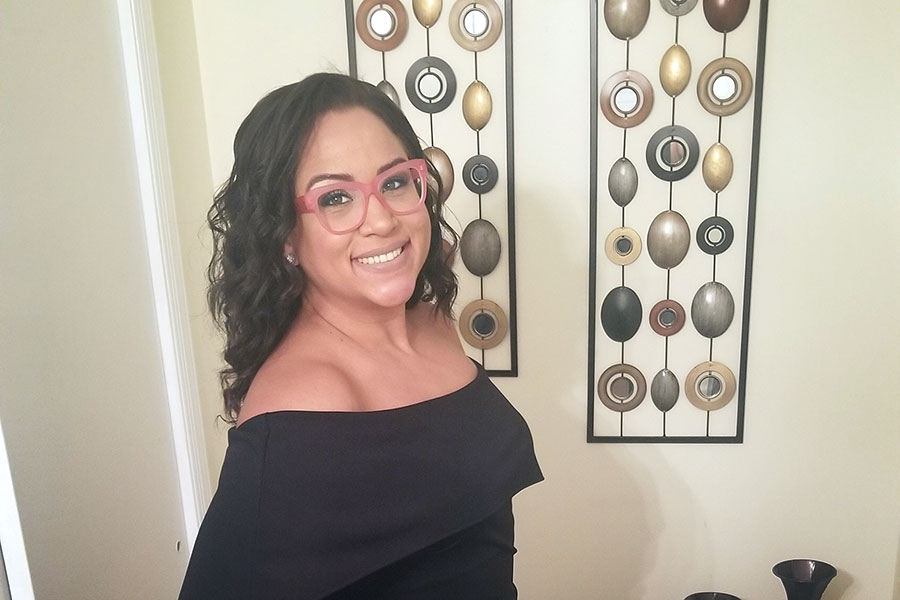
Radiris (Chichi) Diaz (BSBA 2007)
Security Awareness and Training Manager
National Grid
"The Hispanic community is many shades of awesome. We look different, we sound different, but ultimately what I love the most about my culture (and I am Dominican American), is how warm, open, selfless, and nurturing it is."
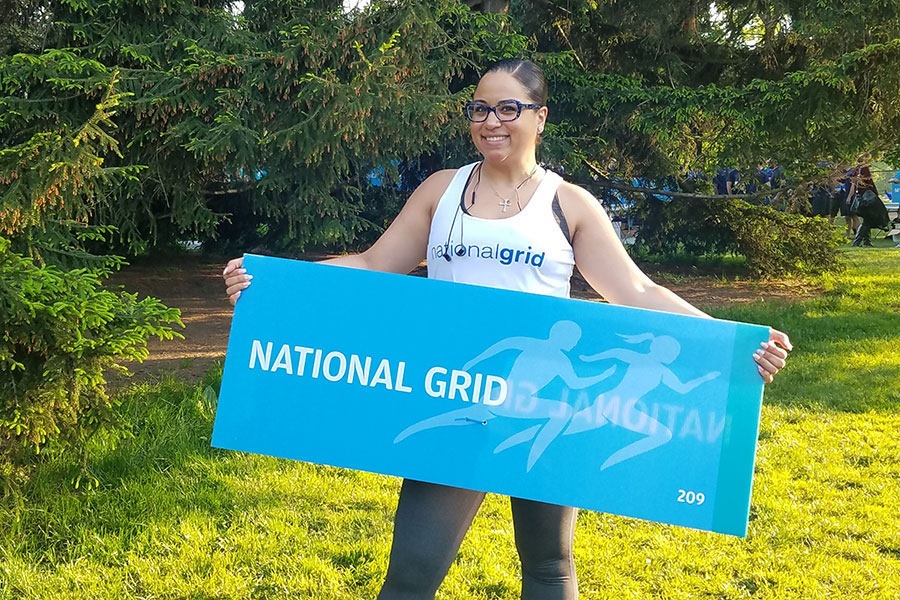
Radiris (Chichi) Diaz (BSBA 2007)
Security Awareness and Training Manager
National Grid
"The best way one can be an ally to any community is to be curious, not make assumptions or put us all in one box, ask questions and try to immerse yourself in our world. There is nothing that I love more in this world than to hear someone attempt to speak Spanish."
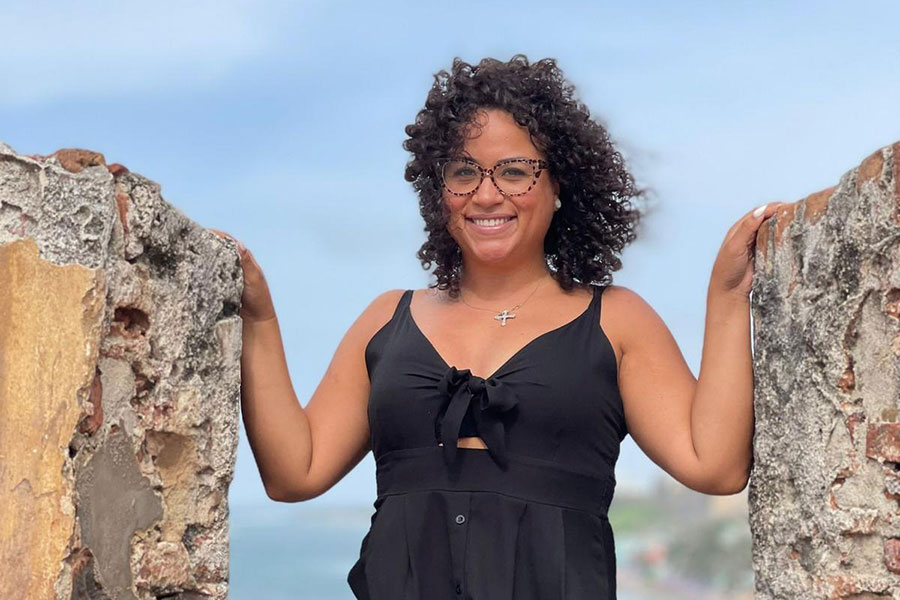
Radiris (Chichi) Diaz (BSBA 2007)
Security Awareness and Training Manager
National Grid
“My culture, and being bilingual, have driven me to value diversity, equity, inclusion, and kindness. Community and belonging is what we value and I hope more can see and understand that.”
Describe your journey to your current role in a few words:
I currently work for National Grid as the Security Awareness and Training Manager for the U.S., overseeing cyber and physical security. I have been in my current role for less than a year. My professional career started with the help of an organization called INROADS. I started a career in consulting, at the tender age of 20, through INROADS and IBM, who was my sponsoring company. I interned for two summers and then became a professional road warrior for about six years before going to the Fuqua School of Business at Duke University.
Management consulting was a great career to have – working on multiple projects, learning a lot, working in different cities/countries, etc. It was also a bit exhausting, so I transitioned into things that not only paid my bills, but also my soul. I worked in education, nonprofits, start-ups; but ultimately, a class at Carnegie Mellon really determined my path.
I took a class on Organizational Behavior that completely changed me. It taught me about leadership, human behavior, group dynamics, how to optimize how people work together, and change management. Almost all of my roles, since graduation, have incorporated elements of organizational behavior. My current role allowed my childhood dream of being a teacher to collide with my educational curiosities planted by Carnegie Mellon.
My purpose is to unleash potential in others so that they connect deeply, engage fully, embrace their wholeness, and holistically grow. I am blessed to say I get to do this every day of my life – with great people, at a great company, doing great things.
How did you celebrate your heritage while a student at the Tepper School?
I learned to embrace and showcase my heritage and culture while at Carnegie Mellon. ORIGINS was my starting point and the Carnegie Mellon Action Project/Carnegie Mellon Advising Resource Center (CMAP/CMARC) were where I continued that journey. I then tapped into the social aspect of being a student and joined the Spanish and Latino Student Association (SALSA), as well as the Latin American Student Association.
Food and music are the threads that bind my culture together. It’s all about togetherness and celebrating anything and everything. During my junior year, friends and myself started a Special Interest House – Latinas Unidas. We had our own dedicated space to nurture a growing community. The amount of meals shared at that apartment in Doherty House are way more than I can remember, but the memories are alive and well. There, we were able to serve not only our small community, but also the community at large, even outside of Carnegie Mellon. It was an incredible experience and I am still very good friends with most of the ladies I lived with there.
Prior to Carnegie Mellon, I was never really curious about my heritage, it was just my normal. I didn’t understand its history until I started taking classes with Kenya Dworkin, Associate Professor of Hispanic Studies; Therese Tardio, Teaching Professor of Hispanic Studies; and many others in the Hispanic Studies department. My world changed so much through the guidance of those incredible professors, who even encouraged me to study abroad.
What is one thing you want the world to know, acknowledge, or understand about the Hispanic community?
The Hispanic community is many shades of awesome. We look different, we sound different, but ultimately what I love the most about my culture (and I am Dominican American), is how warm, open, selfless, and nurturing it is. You want to have a good time? Make some Hispanic friends, see how they live. Regardless if they were born here, like I was, or came over as an adult or teen. My culture, and being bilingual, have driven me to value diversity, equity, inclusion, and kindness.
Community and belonging is what we value and I hope more can see and understand that. The easiest way to start is by going to our restaurants – start there, then maybe learn a dance or two. If you’re really up for it – travel. Travel to these countries and see how others live. Contribute to their economies, take a cooking class, learn a language, explore their incredible landscapes. I am proud to be an American and also know there is a vast world out there that may do things differently and sometimes better.
How can others be an ally to you or how have others been an ally to you?
The best way one can be an ally to any community is to be curious, not make assumptions or put us all in one box, ask questions and try to immerse yourself in our world. There is nothing that I love more in this world than to hear someone attempt to speak Spanish. Knowing someone has intentionally made the effort to communicate in my native language, regardless of accent, pronunciation, etc. just feels incredible. I think we all want to be seen and heard and to feel like we belong. Learn a phrase, practice it. Try our foods. Visit our countries and not only our resort towns, which don’t always showcase the true beauty and culture of a country. Listen. Listen to us. Use your voice for good. Help us out if we need it.
For many years, I was self-conscious about English being my second language. Many bilingual speakers feel that insecurity. I spoke too quickly, didn’t take enough breaths, sometimes had a sprinkle of a Spanish accent, and it would just leave me frazzled. Claudia Kirkpatrick, Associate Teaching Professor of Business Management Communication, Emerita, and one of the best management communication professors Carnegie Mellon has ever had, drove me to recognize my “bilingualism” and way of storytelling as a strength and the rest is history. She is the reason I now love to use my voice as much as I do and as often as I can, because not everyone has that luxury. Show us interest – we’ll respond with open arms and probably a dish for you to eat. Trust me.
What advice would you offer current Tepper School students?
Tepper does a phenomenal job of teaching you how to earn money post-graduation – all the qualitative classes will set you up for success because people will seek you out. The education is great and the reputation is even better. The one advice I’d offer everyone is to make sure they also learn how to manage and save their money. It’s very easy to get lost in “the advertised life” that exists all around us – I did it for too long. If I could do anything differently, I’d open up a ROTH IRA as soon as I could. Being young is great – enjoy it. Growing old is a gift – prepare for it. Invest what you can, as early as you can so you can enjoy the fruits of your labor in your later years. Also, look up the F.I.R.E. movement if you’re curious about working smart and not necessarily hard for the rest of your life. Live for today but invest for tomorrow.
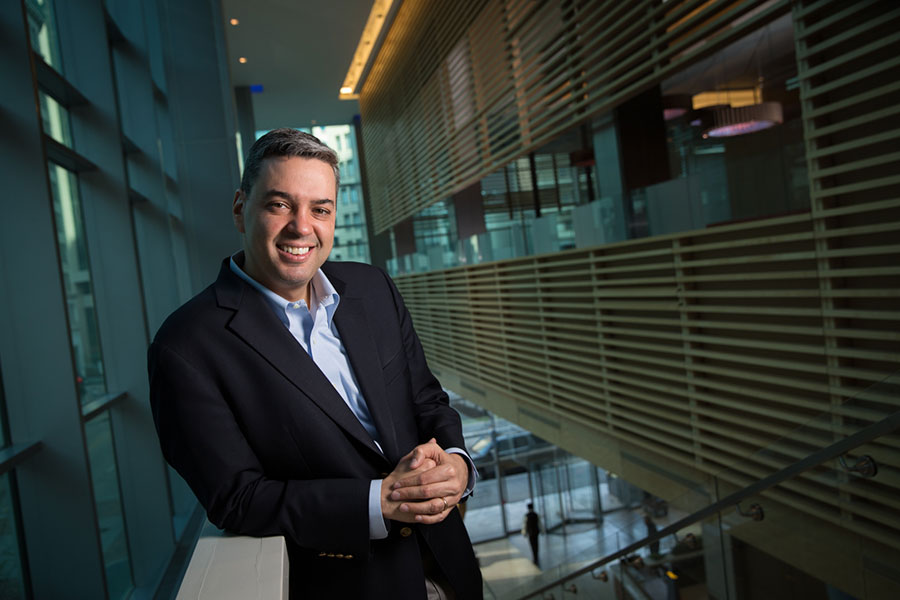
Eduardo Tobon (MBA 2000)
CEO and Cofounder
Riverwoods.io
"To me personally, Hispanic Heritage connects me to my bilingual and bicultural roots, and it brings me the ability to look at the world with multiple lenses. In these roots, we fully embrace family and faith."
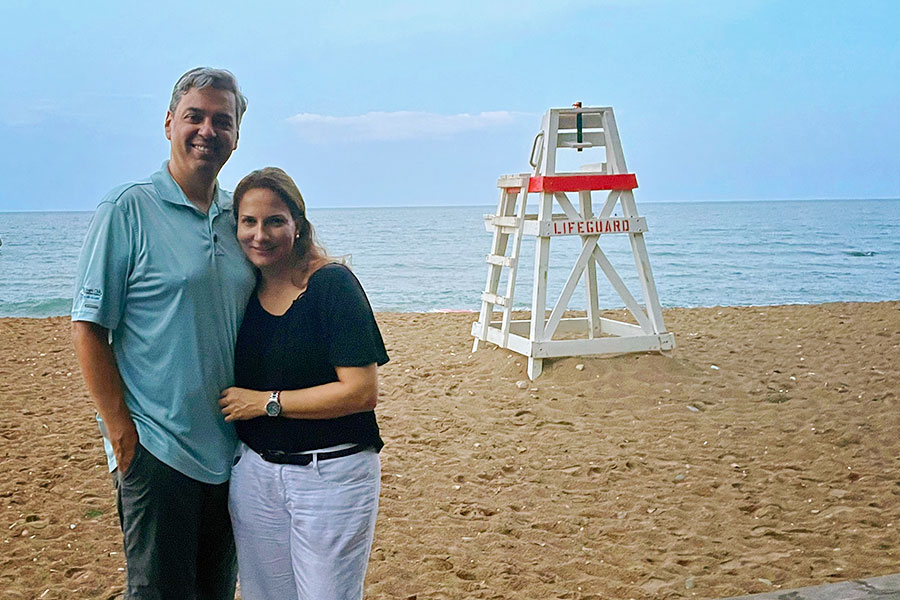
Eduardo Tobon (MBA 2000)
CEO and Cofounder
Riverwoods.io
“Connect with others who are different from you, and I guarantee you that you'll learn a lot from every interaction and it will certainly open your mind to different ways of looking at life and business.”
What does Hispanic Heritage mean to you?
Hispanic Heritage has gained more traction as Latinx (gender-neutral)/Hispanic groups have received well-deserved recognition for our rich culture and work ethic. To me personally, Hispanic Heritage connects me to my bilingual and bicultural roots, and it brings me the ability to look at the world with multiple lenses. In these roots, we fully embrace family and faith. We care deeply about our country and work hard to advance not only ourselves, but also our families, with a sense of purpose and collaboration.
What is one thing you want the world to know, acknowledge, or understand about the Hispanic community?
The Hispanic community is an amalgamation of several microcultures and communities that settled in our country over a long period of time, and it transcends race. Our community includes people whose ancestry ranges from Mexican and North American ancestry — including proud Indigenous heritage — to European (white) and African (Black) heritage. Connectivity to Spain and Africa is very strong throughout immigrants from Latin America.
We're a large, growing demographic and proud to be Americans, and at the same time, bicultural (and in several cases, bilingual). Given our current size in the U.S. population, our community will contribute enormously to the outcomes of our country. Like Lin Miranda said, we get the job done!
What advice would you offer current Tepper School students?
Take full advantage of your clubs to reach out to alumni, as well as to get visibility within common areas of interest.
For instance, you can be interested in exploring how diversity adds value and connect with an alumnus who belongs to one, or even several, categories (such as Latinx/Hispanic, African American, Asian, LGBTQ, veteran, etc.) and learn about their journey. I guarantee you that you'll learn a lot from every interaction and it will certainly open your mind to different ways of looking at life and business.
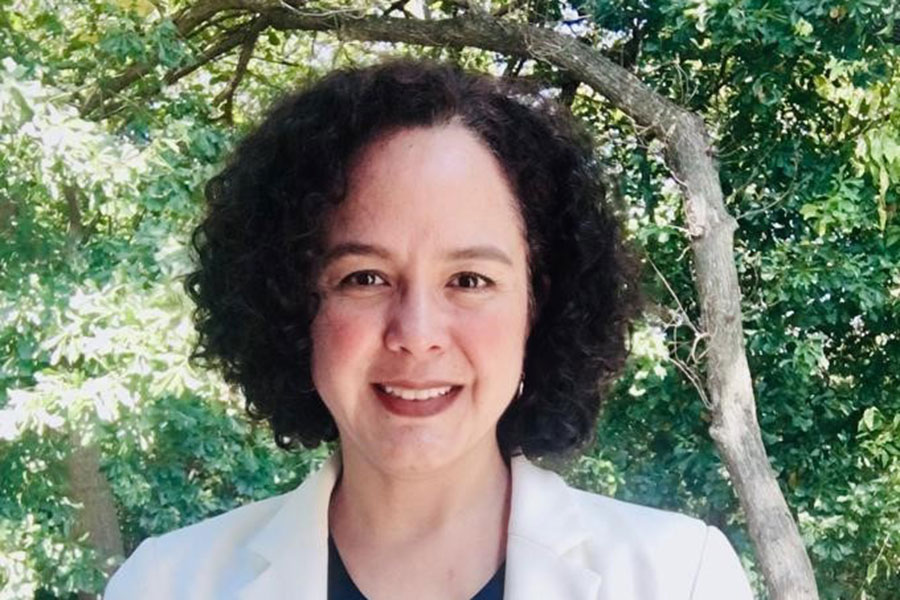
Rosana Bustamante (MBA 2002)
Manager of Financial Planning and Analysis
Flowserve Corporation
"Having a foundation on how businesses work allows me to easily understand strategies and communicate effectively with all levels."
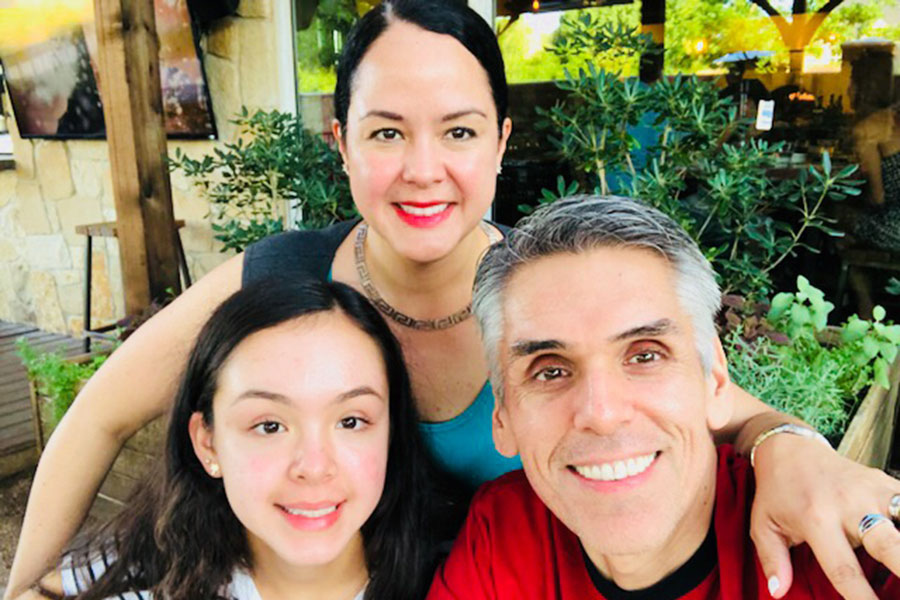
Rosana Bustamante (MBA 2002)
Manager of Financial Planning and Analysis
Flowserve Corporation
"The academic rigor at Tepper does not compare with most of the roles you’ll land once you graduate. The pace at most corporations isn’t as frantic as the pace at Tepper. However, you’ll have the best advantage of all, which is extra time at the end of your day. Use this time to network. A lot."
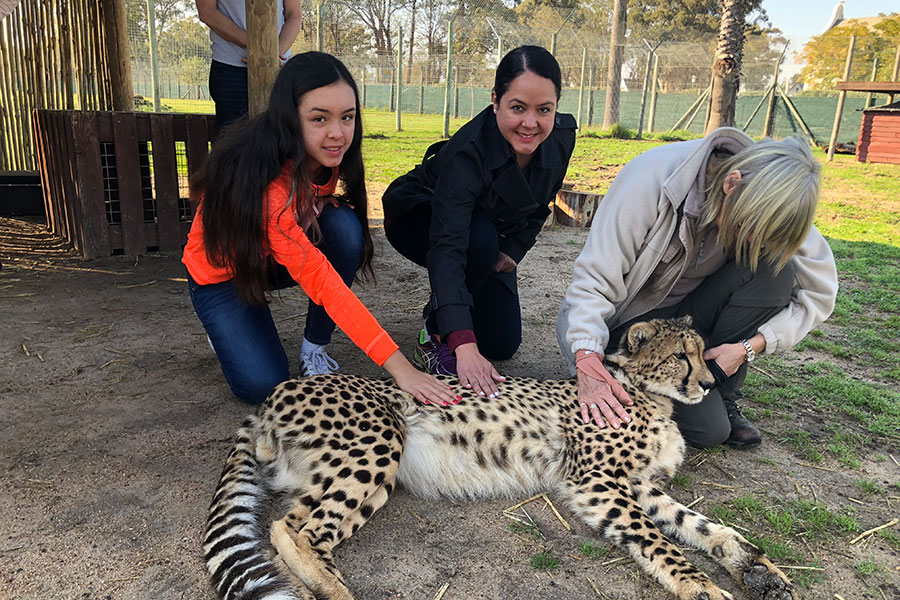
Rosana Bustamante (MBA 2002)
Manager of Financial Planning and Analysis
Flowserve Corporation
"We speak several languages at home, one of them being Spanish. This helps our daughter practice it, so she communicates easily with grandparents and cousins."
How do you celebrate your heritage?
We speak several languages at home, one of them being Spanish. This helps our daughter practice it, so she communicates easily with grandparents and cousins. We celebrate Dia De Los Muertos by remembering my husband’s grandparents, my father, and even our precious chocolate lab. Sundays are for carne asada or barbecue.
How do you use your Tepper School degree now?
The ability to analyze and propose solutions to unique problems is something I apply constantly. Also, having a foundation on how businesses work allows me to easily understand strategies and communicate effectively with all levels.
What advice would you offer current Tepper School students?
The academic rigor at Tepper does not compare with most of the roles you’ll land once you graduate. The pace at most corporations isn’t as frantic as the pace at Tepper. However, you’ll have the best advantage of all, which is extra time at the end of your day. Use this time to network. A lot.
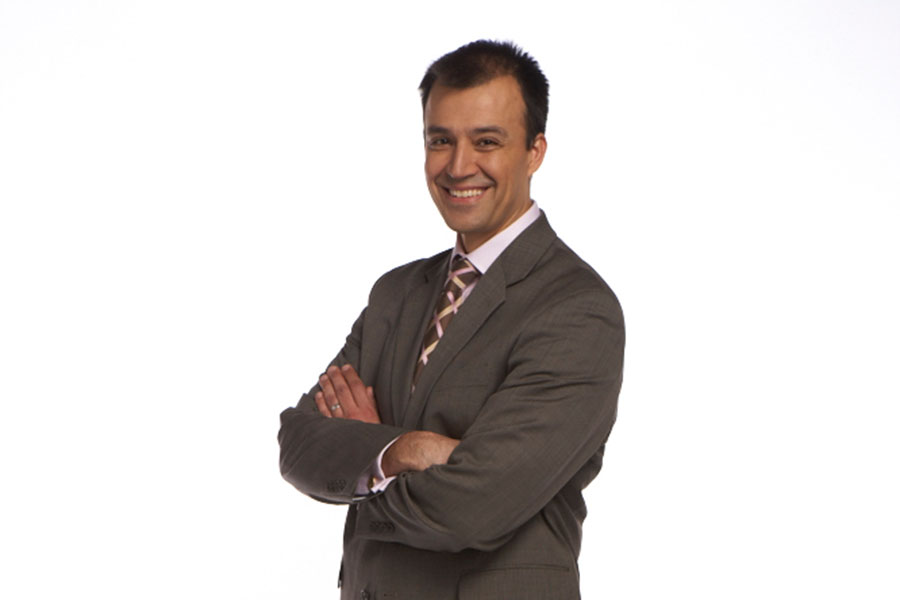
Cristo Paraskevas (MBA 2003)
DLC
Consultant
"Take advantage of having world-class professors and ask lots of questions."

Cristo Paraskevas (MBA 2003)
DLC
Consultant
"A person born and raised in Reno, Nevada is almost unlike one from New York City. The same applies to the Hispanic population. Not everyone is of Spanish heritage and depending on where you're from, you're conservative or progressive, religious or not, and an individual in many ways."
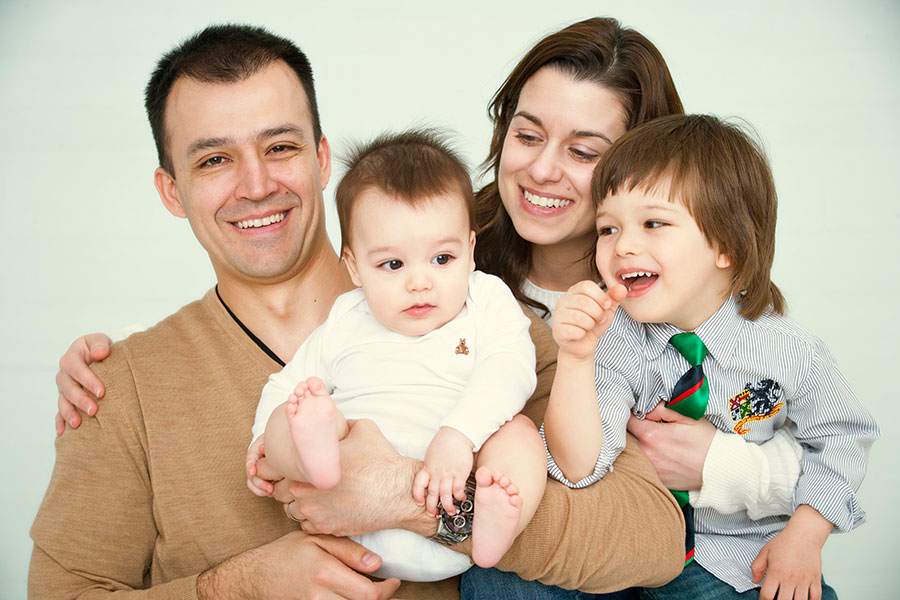
Cristo Paraskevas (MBA 2003)
DLC
Consultant
"It [being of Hispanic Heritage] means knowing more than one language and understanding what cultural differences mean in practice. I am also able to be more empathetic to others because I'm aware of these cultural differences."
What does Hispanic Heritage mean to you?
It means knowing more than one language and understanding what cultural differences mean in practice. I am also able to be more empathetic to others because I'm aware of these cultural differences.
How did you celebrate your heritage while a student at the Tepper School?
I celebrated my heritage mainly through food and music! We shared homemade meals with our classmates and learned about the differences in recipes from different countries in North and South America.
What is one thing you want the world to know, acknowledge, or understand about the Hispanic community?
The obvious: A person born and raised in Reno, Nevada is almost unlike one from New York City. The same applies to the Hispanic population. Not everyone is of Spanish heritage and depending on where you're from, you're conservative or progressive, religious or not, and an individual in many ways.
What advice would you offer current Tepper School students?
Enjoy your time in school! Take advantage of having world-class professors and ask lots of questions.

